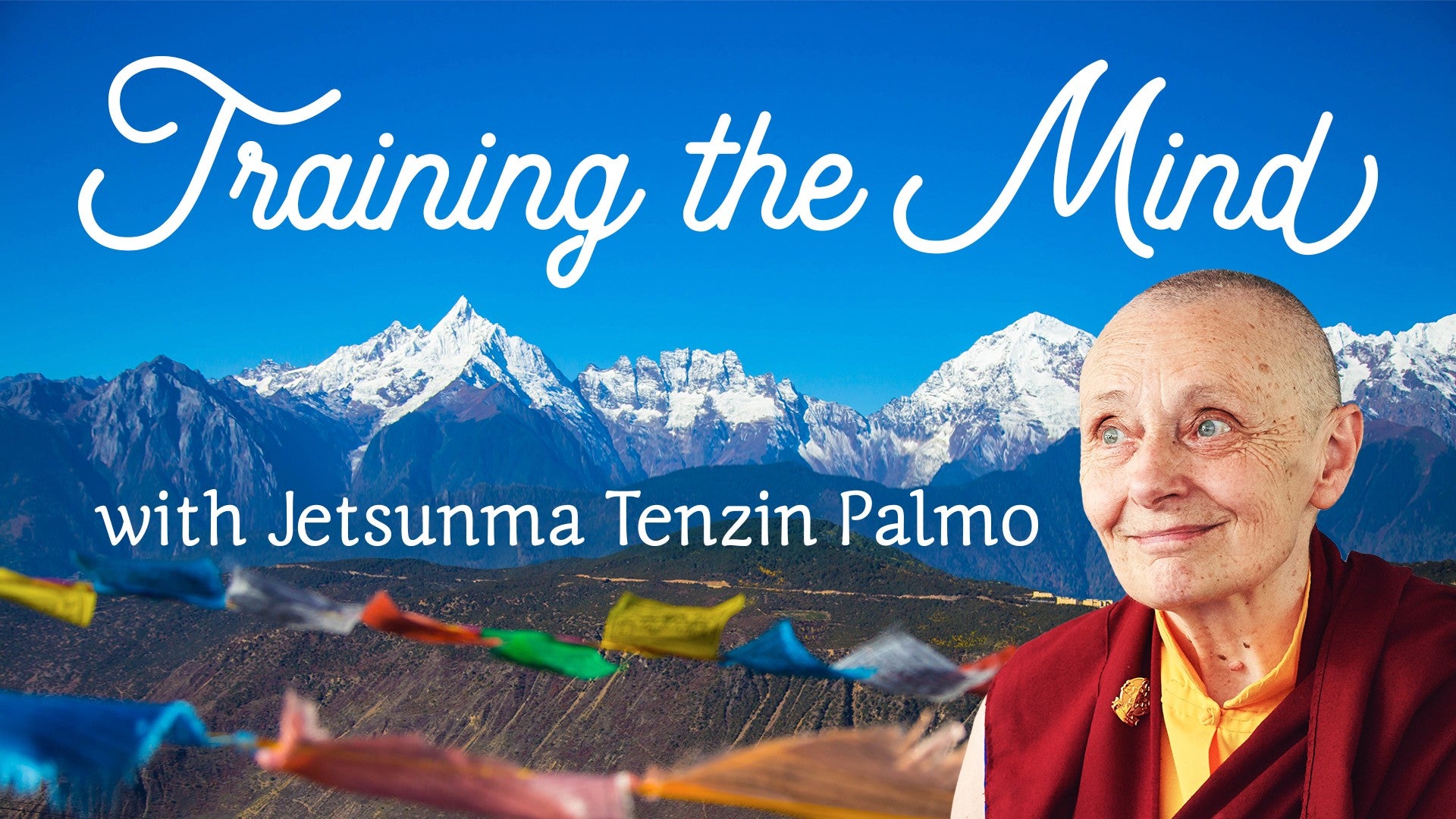Description
About This Video
Transcript
Read Full Transcript
So we have dealt with, in the Paramitayas, with generosity, ethical conduct, and patience. And the next one is effort. So he says, the supreme effort is to let go of all activity. So again, he turns everything around. Normally when we think about effort, we think about doing something, right?
We've got to do something. We've got to, even when people go into retreat, for many of them, it's a lot of activity, a lot of things to be accomplished, gained. What are you going to get out of this retreat? What did you get from it? And the point of a successful practice is not what we gain, but what we let go of.
What we lose, what we drop, truly, all looking very serious. So therefore, the supreme effort is to let go of all activity, all inner activity, all the activity which says we've got to get somewhere. We've got to achieve something. That the harder I try, the more I will attain I. But from the point of view of genuine practice, it's truly not what you gain, but what you lose.
We cannot gain enlightenment, awakening, nirvana, anything we want to call it, by pushing. Because it's the opposite of ego engagement. The ego wants to get something. Some people are asking a question, what did you achieve? What have you gained?
I mean, it's not about gaining and achieving. That's the ego. The ego wants to have its stamp, look, now I'm a bodified enlightened being, class two. It's not about that. This is why the ego cannot achieve enlightenment.
I cannot be enlightened, sorry. It's only when, all thoughts of achievement and I for gain, mine for gain, my achievement, my realization, my experiences, it's not about that. And because of that, the idea that we are climbing up the side of the mountain is very misleading. There's no mountain to be climbed, and no one to climb it. So that's why it's considered that the highest effort is non-effort.
A while ago I read a book written by one of these, in the 19th century there were a number of highly educated, affluent American gentlemen, mostly male, sometimes famous, who went to Europe and moved in cultural circles and bought up a lot of the art, like in the Frick Museum in New York, et cetera. A lot of art, very good art was for sale in those days if you had enough money. And they moved in highly cultural circles, mixing with artists, and feeling themselves quite bohemian despite being very wealthy and affluent and cultured, but they moved in all these artistic circles. And one of them wrote a book which was about his meetings with various artists, well-known artists like Rodin and these kind of people, and musicians like Bruckner and Brahms and good guys. And what he was asking them all was, at the time of your highest creativity, what is your state of mind, essentially?
That's what he was asking. And in each and their own way, but generally the message coming through was that when they were putting in a lot of, you know, they had a composition or something to paint or whatever they were doing, when they were just doing it, because they had to fulfill a commission. And so they were painting or composing within their ordinary conceptual thinking mind. It was very routine work, might have been very good because they were all masters of their craft, but it was just routine. But they said there were a certain point at which basically they dropped the ego and something else came up from a deeper source, which appeared outwardly to be completely effortless.
But that was when later it was regarded as being genius. It was at those moments that genuine creativity arose when they said there was no I blocking it. When the self, the I that wants to impress or to work just falls away, then a much deeper level came up. And because they were trained in their craft, therefore, that could express itself effortlessly as their genius. And again, again, again, in their own way, all these great artists and composers and so forth were saying this.
So also sportsmen report the same thing, right, that there are certain moments when they do things which are incredible, they couldn't possibly do it. But how did they do it? It's there on record, they did it. So what blocks us is our ego again. That stands, it's a block.
It's a distortion of our genuine, effortless, endless inner creativity which wants to take over that territory and make it its own and therefore blocks the light. So therefore when we do a practice, especially retreats and things like this, the ego is in charge thinking the more I do, the harder I try, the more I will attain, then it doesn't allow for the so much deeper aspects of our being to be realized. So this I think is why he's saying that the supreme activity, the highest activity is really just, the highest activity is non-action, which doesn't mean just lying in bed and thinking right now if I go, I should completely relax and get enlightened, if only. Also we have to recognize that it does in fact take a lot of effort to become effortless. As with any skill, we need to practice and practice and practice with effort in order for that time when we can drop it and the deeper level of genuine proficiency comes through.
Like with a great musician, they play and it's not them playing, the music is playing through them. But that doesn't negate all the thousands and tens of thousands of hours they were practicing with effort. But ultimately, once we have learned, the ego has to lead because anything which we do with an ego-based drive to it is going to stay on a mundane level, can never transcend itself. So the ego has its place, but when it dominates, especially in our practice, then we will never get beyond going around and around and around and becoming more and more outwardly proficient, but we can never reach to that transcendent state because that is something which is unknown to the ego and therefore the ego feels challenged because of course it's the death of the ego. The ego can be helpful and a good, healthy, balanced sense of self is important to walk the path, but at a certain point, if it takes over, then we cannot take that leap into the unknown.
So therefore I think this is why he says that the supreme effort is to let go of all ego-driven activities. We have to let go. In that effort, the supreme effort is effortlessness. But just as I say, doing nothing does not solve the problem, so no excuses for making
Training the Mind with Jetsunma Tenzin Palmo
Comments
You need to be a subscriber to post a comment.
Please Log In or Create an Account to start your free trial.









